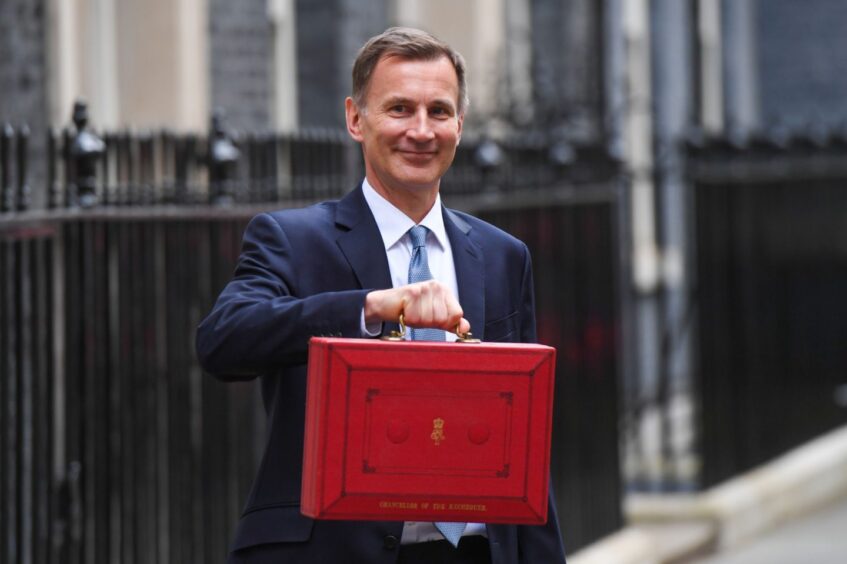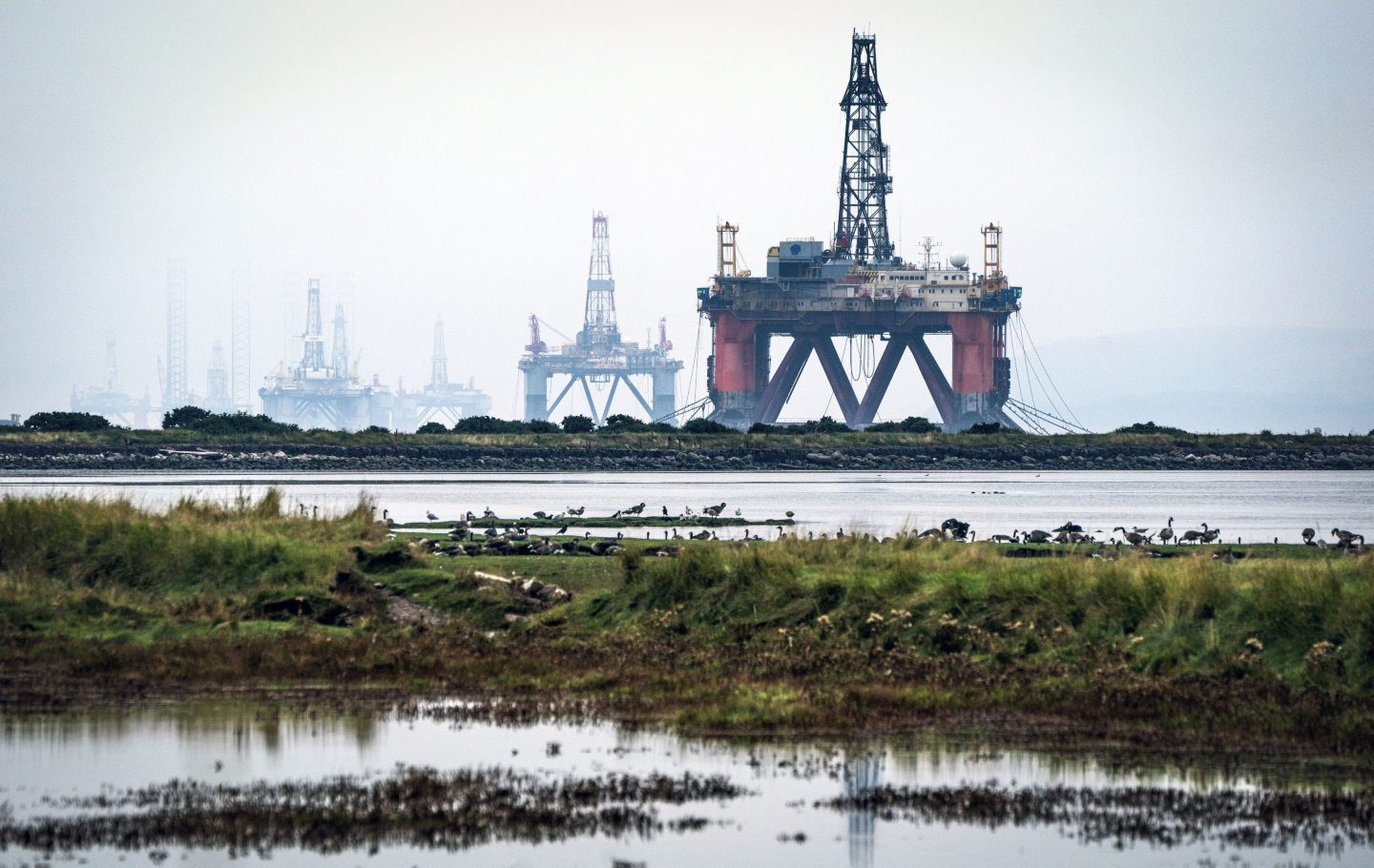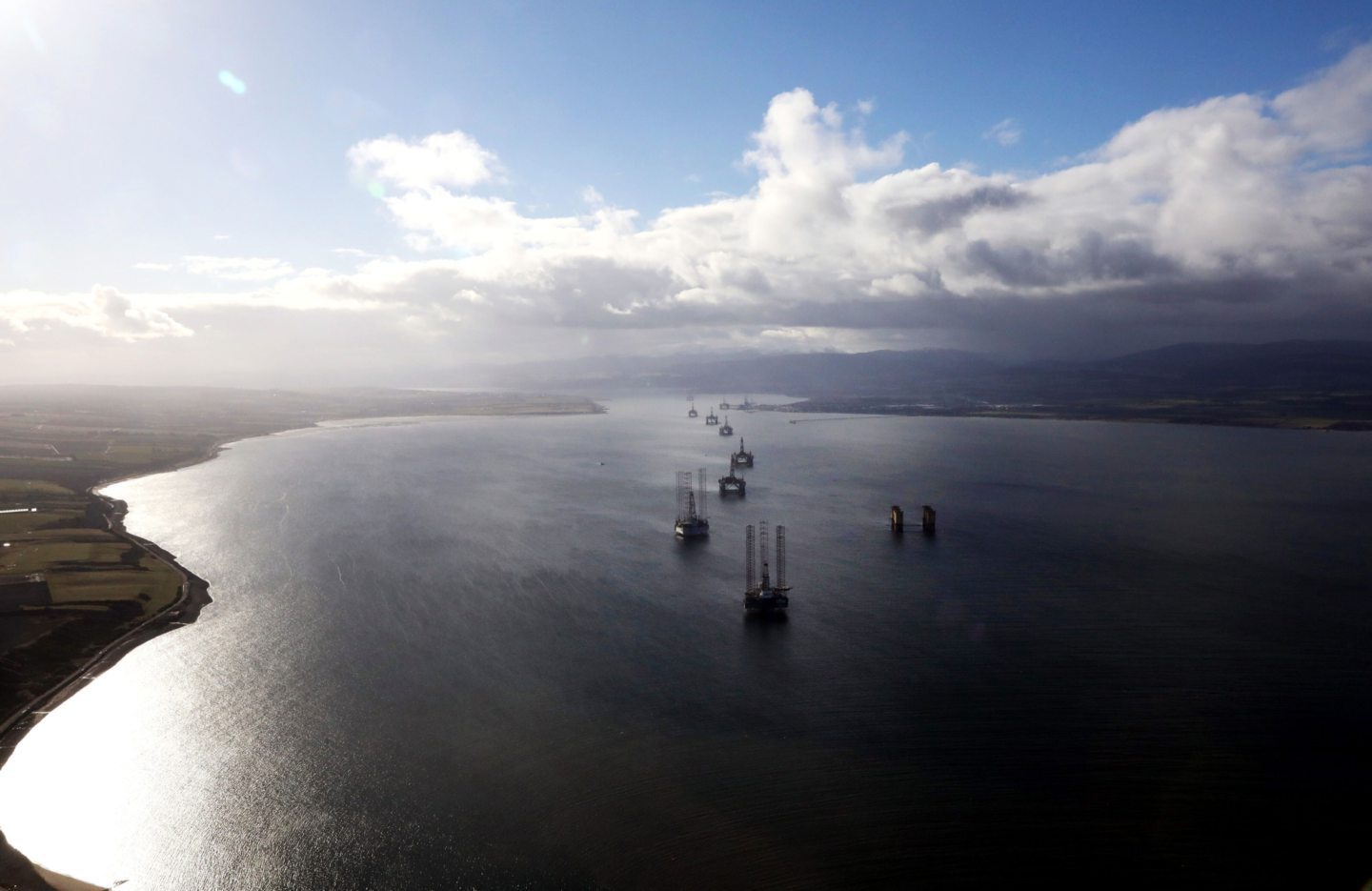
North Sea oil and gas firms will be watching keenly for a decision on the windfall tax as Chancellor Jeremy Hunt delivers the UK government’s Spring Budget on Wednesday.
A report from Bloomberg last week suggested the Chancellor is weighing up extending the windfall tax on oil and gas firms, prompting a furious response from industry leaders.
Meanwhile, Reuters reported on Monday that the government is set to announce a one-year extension to the windfall levy to 2029, according to industry sources.
No further changes to investment allowances included as part of the Energy Profits Levy (EPL) are expected, Reuters said.
Industry leaders said the government risks undermining North Sea investment with further fiscal change, and said Aberdeen “is paying the price“.
The budget rumours follow a recent commitment from Labour leader Sir Keir Starmer to raise the windfall tax rate by 3% and “close loopholes” on investment allowances.
Aberdeen business leaders branded the move a “betrayal” and unions warned of the potential jobs impact, but shadow energy secretary Ed Miliband defended the policy.
Meanwhile, First Minister Humza Yousaf said the SNP would push to maintain the windfall tax at current levels.
Windfall tax uncertainty
During a visit to Aberdeen last week for the Scottish Conservatives conference, Prime Minister Rishi Sunak declined to comment when asked about possible changes to the EPL.
“I’m sure you and everyone else will understand why it would not be appropriate for me to comment on any speculation or fiscal policy ahead of the budget,” Mr Sunak said.
“But what I can say is that we have consistently been the only major party that has backed the North Sea oil and gas industry.”
In an opinion piece ahead of the conference, Mr Sunak had made a big show of his support for continued oil and gas exploration.
During his visit Aberdeen he wanted to “show how the UK Government is backing British oil and gas and the tens of thousands of jobs the industry supports”.
“I want more offshore wind, I want more nuclear power and, while we transition to more green energy, I want more oil and gas that comes from home,” he wrote.
Muddled messaging
But in a speech to the Scottish Conservatives conference at the P&J Live, Mr Sunak provided little in the way of firm policy announcements to assuage industry concerns.
Mr Sunak spoke of supporting energy security and the thousands of jobs in the North East that depend the oil and gas sector.
He also highlighted prior government policies including caps on energy bills and introducing legislation to mandate annual North Sea oil and gas licensing rounds.
But in a Q&A session following his speech, Mr Sunak made no mention of the windfall tax when questioned by party members on taxation policy and energy security.
One Scottish Conservative told the Press and Journal that the muddled message will cause big problems in the region after they attacked Labour and the SNP over their tax plans so heavily.
“This can’t be allowed to happen,” the politician warned.
Over the weekend, Scottish Tories including West Aberdeenshire and Kincardine MP Andrew Bowie and Moray MP Douglas Ross spoke of their efforts to lobby against the windfall tax.
Mr Ross said any extension to the windfall tax would be an “unacceptable blow” to the confidence of the North Sea energy sector.
‘Enormous opportunity’ for UK
Energy Secretary Claire Coutinho accompanied Mr Sunak to Aberdeen and similarly provided no public comment on the EPL.
Appearing at a panel discussion focused on the managing the energy skills transition, Ms Coutinho was keen to portray a positive vision for the North Sea energy sector.
“There’s never been a more exciting time to be in energy, the transition that we are undertaking will be the fastest energy transition that’s ever happened in the history of mankind,” Ms Coutinho said.
“We have an enormous opportunity in front of us because the UK has so many competitive advantages… we have the skills, we have the geology, we have the existing infrastructure.”
Hydrogen, CCUS and nuclear
Ms Coutinho said the government was “throwing the kitchen sink” at developing emerging technologies like small modular nuclear reactors, hydrogen and carbon capture and storage.
But industry leaders appearing on the panel alongside Ms Coutinho stressed the importance of not undermining the oil and gas supply chain which they said will be critical to delivering the UK’s net zero energy transition.
Offshore Energies UK (OEUK) external relations director Jenny Stanning said North Sea firms will be paying close attention to the upcoming budget.
“The existing oil and gas industry is perfectly placed to invest in the green energy transition,” Ms Stanning said.
“It just needs the fiscal headroom to be able to do that.
“It will be all eyes on a UK budget… to see if the Chancellor announces some measures that really support an irresistible investment environment into which oil and gas companies can put their money [and] support jobs, the transition and communities around the UK.”
Homegrown energy transition
Ms Stanning said without the investment of existing North Sea oil and gas firms, the UK would have to “import the transition”.
“You could have the transition, but it wouldn’t be home grown,” she said.
“You would import the transition, you would lose the jobs, you would lose the capability of our world class supply chain.
“That would go overseas because there’s huge competition for investment for our people.”
Ms Stanning said the North East’s skilled workforce and supply chain capability is in high demand overseas.
She pointed to a Robert Gordon University report which warned up to 95,000 offshore energy jobs are at risk without increased investment.
“People [in the industry] want our people overseas and they want our money overseas as well so it’s really important that we make it absolutely irresistible to put the money here to deliver a home grown green energy transition,” Ms Stanning said.
“The report… talks about this ‘Goldilocks’ opportunity from 2024 to 2028 when we really need to get the transition right.
“And it’s also one of the reasons that we warn against policies that stop or cut off investment in the North Sea too early.”
Skills, supply chain could go elsewhere
Ms Stanning said implementing policies which discourage investment in the North Sea will see companies “take their money and their people elsewhere”.
“That means that the supply chain that sits underneath the big operators that are making these big capital investment decisions, they go elsewhere too,” she said.
“And other oil and gas basins around the world are booming just now, there’s a huge competition for capital, people and the supply chain, and they are mobile.
“The vessels that we require to service our oil and gas industry are the same vessels that we require to service offshore wind, and if they go to other oil and gas basins until they’re finished, they will stay there and deliver their energy transition and we will have to import our energy transition and that’s in nobody’s interest.”
Net Zero Technology Centre director of government affairs and policy Stephen Sheal said the North Sea oil and gas sector needed policies which encourage investment in energy transition technologies like CCUS and hydrogen.
“We won’t be able to compete with the IRA (Inflation Reduction Act) in the United States, or the green industrial plan in Europe, unless we have a different model,” Mr Sheal said.
“And getting the private companies to unlock their investment is absolutely key.
“What we want to see is the supply chains we have built up and we want to make sure that we have the capability in the UK to be a world leading technology provider for other basins.”
Recommended for you


 © Michal Wachucik/PA Wire
© Michal Wachucik/PA Wire © Michal Wachucik/PA Wire
© Michal Wachucik/PA Wire © Michal Wachucik/PA Wire
© Michal Wachucik/PA Wire © PA
© PA © Bloomberg
© Bloomberg © Supplied by System
© Supplied by System